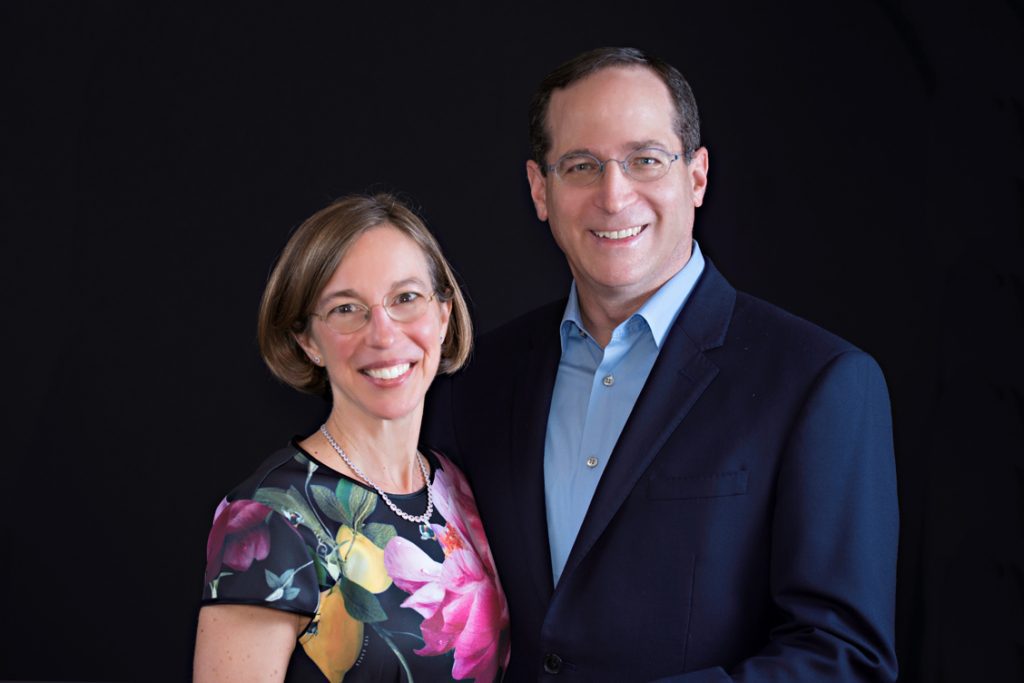How Boston Business Schools Help Low-Income MBA Applicants

Anyone planning on earning a postgraduate business degree knows that MBA programs cost a lot of money. In the Boston metro, where the cost of living is already high, the annual cost of an MBA program can reach upward of $100,000 … Ouch! Continue reading…
NYU Stern Alumni Create Scholarships for Community College Transfers

The journey to college can be a long and winding one. For some, it starts in community college. But from there, students can end up in one of the best business schools in the country. Like the Stern School of Business at New York University.
Alumni of its MBA and undergraduate programs are now easing that transition for some of the best students switching from community college to major university with some scholarships, per a new press release. The school established three new scholarship funds for two-year community college students who’ve been admitted into NYU Stern. These scholarships are engineered to go to students in need, helping low-income individuals get access to the education they deserve.
Howard Meyers Scholars
The Howard Meyers Family Foundation donated $3 million for the effort. Meyers graduated from Stern’s undergraduate program in 1964. This fund will go directly to community college students hoping to make NYU their next stop, who will be called Howard Meyers Scholars. Applicants need to prove two-years worth of academic excellence and go on to complete their junior and senior years at NYU, with the first two scholars attending in fall 2018.
Pamela J. Craig Scholar Fund
MBA graduate Pamela Craig launched the Pamela J. Craig Scholar Fund, which will go toward students who attend CUNY schools, particularly those from LaGuardia Community College. Craig leads a mentor program there. Her mission is to increase access and inclusivity among diverse students. This fund should help push that further.
Martin Cohen Scholarship Fund
An additional $300,000 gift is will go toward creating the Martin Cohen Scholarship Fund, which will also begin in fall 2018 for two CUNY students per year. The fund will help each student’s last two years of college. Once these scholars wrap up their undergraduate years, perhaps they can go on to obtain their MBAs—at NYU Stern.
Semi-Retired Fowler College Professor Honored With Scholarship

Faculty can’t just walk away Fowler College of Business at San Diego State University. The school’s got a hold on them. At least that was the case for Finance Professor Mehdi Salehizadeh.
The professor retired in May 2017 after 37 years at the school, a press release reads, but he’ll actually be around campus this year, too. Salehizadeh agreed to stay with a school just a little bit longer while Fowler finds a replacement for The Corky McMillin Center for Real Estate. So for now, he’ll be its interim director until a full-time director is hired.
Given the semi-retired professor’s commitment to the business school, it’s now honoring him with a scholarship in Salehizadeh’s name with the Mehdi Salehizadeh Legacy Endowed Scholarship. The hope is that the scholarship would be $4,000 given to two students or $2,000 to four students every year. But the school must raise the money first. Ideally, $100,000 to be matched by the school, said Scott Brusseau, chair of the center’s advisory board.
Salehizadeh knew what kind of student to whom he wanted to gift such a scholarship. Here are the basics. The student’s got to be a junior who’s majoring in finance or real estate. This student must have a minimum 3.0 GPA. And, obviously, this person’s must be enrolled with the Fowler College of Business. There’s even the potential for the scholarship to give priority to first-generation college students who face obstacles different than their peers whose parents have attended college.
Center Coordinator Melissa Abeyta thought up the scholarship in conversation with Brusseau. She knew she wanted to honor the professor’s legacy with Fowler but wasn’t quite sure how.
“The scholarship was a great way to thank him for all he’s given to SDSU, for sustaining The Corky McMillin Center for Real Estate and his leadership within the Fowler College of Business,” Abeyta said.
The first scholarships were given out for this school year, 2017-18
Harvard Business School Announces Largest-Ever Scholarship Donation

Harvard Business School (HBS) yesterday announced its largest-ever donation for scholarship aid—a $12.5 million pledge that will help support students who were the first in their families to attend college, among others. The pledge comes from HBS alumni Jonathan Lavine, Co-Managing Partner of private investment firm Bain Capital, and his wife Jeannie (both MBA ’92).
The first $10 million will support the Lavine Family Fellowship Challenge Fund, a matching fund designed to motivate others to donate in support of the school’s scholarship needs. The remaining funds will endow two $1 million fellowships—the Lavine Family Fellowship and the Herbert J. Bachelor Fellowship—and provide an additional $500,000 to the HBS Fund for various school priorities.
The Lavine’s have stipulated that, wherever possible, the fellowships be made available to first-generation college graduates in honor of Jeannie’s father, Herbert Bachelor, who was the first in his family to go to college. Bachelor worked 40 hours a week while an undergraduate at Harvard College to cover expenses but still accumulated a large amount of debt, which grew larger still as he earned his MBA from HBS (’68).

Jeannie and Jonathan Lavine
“It was his dream to have his own children be able to attend college without the stress of holding down a job or the added burden of student debt upon graduation,” said Jeannie Lavine in a press release announcing the gift. She followed in her father’s footsteps, obtaining both her bachelor’s and MBA degrees from Harvard. “He was able to make that dream come true for my siblings and me, and Jonathan and I would like to pay that forward and give other people the same opportunity, especially those who are the first in their family to attend college,” she continued. “We know that intellect is not distributed based on income, and neither should a top education.”
HBS Admissions Is Merit-Based, Need-Blind
HBS prides itself on its merit-based admissions policy, which means that an applicant’s ability to afford tuition does not factor into the admissions process. Once students are admitted, fellowship grants are awarded based solely on financial need. Approximately half of the HBS class receives financial aid each year—$37,000 per student on average—and the school provided $35 million in financial aid to MBA students in the 2016-17 academic year.
“We are thrilled about this gift and grateful to the Lavine family because students who are the first generation in their family to go to college represent an important and needed perspective in the classroom,” HBS Managing Director of Admissions and Financial Aid Chad Losee told Clear Admit. “We admit based on merit and support financially based on need, which makes us different from other business schools,” he added. “Everyone here is here for a reason: because of their talent and merit and what they bring as a leader.”
Close to 10 percent of the HBS class each year is comprised of first-generation college graduates, according to Losee. “We hope this gift and this announcement will help get the word out to people from all different backgrounds who otherwise may feel like HBS isn’t accessible to them,” he said.
Earlier this year, HBS announced another fellowship likewise designed to support students with limited financial means. The Forward Fellowship, announced in July 2017, will award between $10,000 and $20,000 per year to students from lower-income backgrounds above and beyond HBS need-based fellowships. Unlike the HBS need-based fellowships, which are awarded based on students’ individual financial situations, the new Forward Fellowships take into consideration the applicant’s family circumstances and financial history so the available funds can be distributed to those who need them most. These can include not only students who grew up in lower-income households, but also those who plan to provide financial support for their parents during their graduate school careers or after obtaining their MBA.
“We want HBS to be the place where the best leaders from anywhere in the world can come and thrive and be successful,” Losee said. “This most recent gift from the Lavines is great and continues to tell the story that we want to support students when they get here.”
Lavine Family Philanthropic Roots Run Deep
The Lavines’ gift adds to the financial aid resources available to HBS students and builds on the couple’s history of philanthropy, which has long been focused on creating a more equal playing field for all through access to quality education. Jonathan serves as chair of the national Board of Trustees for City Year, an organization focused on reducing the high school dropout rate in U.S. cities. And the couple has also made major contributions to uAspire, an organization focused on providing financial resources to attain a postsecondary education; LIFT, a national nonprofit focused on breaking the cycle of intergenerational poverty; and numerous aid programs at Columbia University, where Jonathan also serves as vice chair of the Board of Trustees.
In addition, they are long-time benefactors and actively involved at Harvard. In 2011, they established the Lavine Family Cornerstone Scholarship Fund to support four undergraduates annually through Harvard’s financial aid program. In 2012, they established the Lavine Family Humanitarian Studies Initiative at the Harvard T. H. Chan School of Public Health to support the training and education of humanitarian relief workers. They also both serve on the dean’s advisory boards at HBS at the School of Public Health and co-chair the latter school’s capital campaign.
“We’re proud to support the work of great academic institutions, because we know first-hand the impact they can have on the world,” said Jonathan Lavine in press release. “There is no greater way to improve someone’s future than giving them access to high quality, post-secondary education. We spent a great deal of time discussing with Dean [Nitin] Nohria our passion for education and how inspired we are by my father-in-law’s journey and appreciative of the opportunity our parents provided us. As a result, we decided that this is the best way to bring those interests together.”
Financial Aid at HBS Is Personal
Losee notes that the newly established Lavine fellowships also help highlight how personal the financial aid process at HBS. “The Lavines will be matched with the individual students they are supporting,” he says. “They will meet them and can develop a mentoring relationship with them.” HBS also features an annual dinner that brings together all HBS donors and the students their gifts help support, he said.
Calling them “the lifeblood of the institution,” Professor Felix Oberholzer-Gee, Senior Associate dean of the MBA program, noted that gifts like the Lavines’ benefit not only the students who receive them but also the school as a whole. “They allow us to focus exclusively on filling our classrooms with the very best students,” he said in a release. “Our learning community is enriched by diversity in all its forms, and the fellowships we offer make it possible to bring people here from all walks of life around the globe.”
Learn more about the Lavines’ $12.5-million gift to support scholarship aid at HBS.
This article has been edited and republished from Clear Admit.
How the Chicago Booth School of Business Helps Low-Income Applicants

U.S. News and World Report lists University of Chicago’s Booth School of Business among its top three best business schools in the country. But with the school’s estimated tuition (including living expenses) for the 2017-18 year at $103,759, Booth may not sound like a practical option for a number promising candidates. Though the $126,937 average base salary of graduates is definite proof of return on investment, for many, the cost of tuition may make the idea of earning a Booth MBA seem impossible. Fortunately, the myriad loan and scholarship options available at Booth may make a Booth MBA more feasible for students from all economic backgrounds.
Those of you craving a challenging higher education experience at one of the most prestigious institutions in the U.S. can breathe a sigh of relief. Below, we’ve laid out some of the resources available to help low-income applicants fund their MBA education at Booth School of Business.
Scholarships and Fellowships
Though Booth does not offer need-based financial aid, there are a plethora of merit-based scholarships and fellowships available to promising students. According to the school’s website, awardees are chosen based on the quality of their interview, their academic merit, their prospective concentration, competitiveness, career goals, and life experiences.
Specialized scholarships are available to minority students, veterans, and students with outstanding scholastic achievements. There are also industry-specific opportunities, such as the Canfield Private Equity Fellowship, which is specifically geared toward students with a background in private equity or investment banking, and even includes an internship at a private equity firm.
Take a look at some of the more prominent Booth scholarships available:
Chicago Booth Merit-Based Award
- This general scholarship is awarded to select students at the time of admissions based off, according to the school, “who have excelled in academics, work experience, and service to the community.”
George J. Stigler Fellowship
- This awarded is granted to students who excel in fields such as law, economics, and business.
Forté Foundation Fellowship
- This full-time MBA awarded is gifted to students through the forward-thinking Forté Foundation every year for students that “exhibited exemplary academic, team, community, and/or creative leadership, and are committed to advancing the interests of women in business.”
Distinguished Fellowship
- Students granted this high-ranking fellowship receive a “stipend and mentorship from Harry L. Davis, the Roger L. and Rachel M. Goetz Distinguished Service Professor of Creative Management.” The fellowship covers a student’s entire tuition.
David W. Fox Scholarship
- Another full-tuition award, the David W. Fox Scholarship is gifted to students that have previously or are currently serving in U.S. military. The school notes, “Students must demonstrate outstanding leadership, academic and extracurricular achievements, and a commitment to advancing the interests of those having served in the military.”
You can learn more about Booth’s scholarship opportunities here.
Loans
Booth students who are U.S. citizens or permanent U.S. residents can apply for a variety of federal or private student loans. Students looking for federal loans can choose a Direct Unsubsidized Loan or a Direct Grad PLUS Loan. To qualify for the Direct Unsubsidized Loan, students must be enrolled in at least 200 units each quarter. The maximum amount students can receive with this loan is $20,500 per year. Students who require more than $20,500 per year can apply for the Direct Grad PLUS Loan, which has a much higher cut-off. With this loan, students can receive up to the total cost of attendance (minus any other outside financial support). Students who opt for private, credit-based loans can also borrow up to the total cost of attendance, not including separate sources of financial assistance.
International students also have the option of leaning on loans to help finance their MBA. Booth provides loan options for international students without U.S. cosigners, as these students may not be eligible for private loan options. Those with U.S. cosigners, however, have a wide selection of private loan opportunities available to them.
How Emory Goizueta Helps Underprivileged Students Earn an MBA

When you decide to apply for an MBA program, there are a number of new questions you’ll need to answer. Where would be the best place to earn the degree? What program best fits my career needs? What should I focus my business school studies on?
Among all the other decisions a prospective MBA will need to make, how to pay for the degree may be the last thing on their mind.
It’s no secret that the cost of an MBA—plus the lost income while earning your degree—is intimidating for many prospective students. Many students may choose not to earn an MBA or not to apply to a school that fits their skill and needs due to the price tag. If this seems unjust to you, you’re not alone. Many business schools have committed to making their programs accessible and affordable for low-income students.
The Goizueta Business School at Emory University is just one of those schools, offering a number of loan and scholarship opportunities to help students pay for their degree. Below, we’ve rounded up some of the ways Emory helps to ensure all students—regardless of income—can earn a Goizueta MBA.
How Underprivileged Applicants Can Earn An Affordable Emory MBA
Grants & Scholarships
Grants and scholarships offer students an extremely valuable and all-too-often underutilized opportunity to pay huge portions of tuition without the frustrating proposition of paying it back later. Such funding can be based either on academic merit or financial need.
Tuition Credits: There are a number of tuition credits available for students who fall into specific categories, such as Emory University Alumni, Graduates of the Goizueta Business School Executive Education Program, active duty military and veterans, and applicants working full-time at a 501(c)(3) non-profit. Emory Employees and dependent family members may also be eligible for tuition credits, depending on years of service.
Veteran’s Education Benefits: Veterans and the dependents of veterans may be eligible for monthly education benefits, such as tuition remission. Students looking to receive Veterans benefits who also need additional sources of funding may still do so, and the benefits received will not be considered when determining financial need.
Scholarships: Goizueta offers students the chance to earn a number of potential scholarships based on merit. Many scholarships are offered through partnerships with Atlanta professional organizations. These include:
- Georgia Hispanic Chamber of Commerce: Two $25,000 scholarships
- Department of Health & Human Services: Thirty percent discount on tuition for qualified individuals
- National Association of Asian American Professionals: Two $25,000 scholarships
- Women in Technology: Two $25,000 scholarships
There are also a limited number of honorary scholarships awarded to students after enrollment. The MBA for Executives Class Gift Scholarship, originally endowed by the class of 2005, is offered to students in a professional or field generally underrepresented in the EMBA program. Also available is the Executive Women of Goizueta (EWG) Scholarship, given to accomplished female executives in the Goizueta MBA for Executives program.
Loans
Graduate Loans: Those attending business school are afforded the same federal loan offerings as students starting undergraduate programs. Students may fill out the Free Application for Federal Student Aid (FAFSA) to help determine their financial need and eligibility. Each year, students should fill out a new FAFSA form to reevaluate their need. International MBA students are also eligible for certain types of student loans, which can be explored further here.
